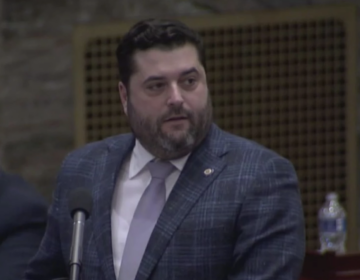Pa. small courts improve access to translators in criminal cases, still lag in other areas

A new Temple University survey shows that interpretation services in Pennsylvania's suburban courtrooms remain inadequate.(Wavebreak Media Ltd/Bigstock)
Small courts in Pennsylvania are not consistently using professional interpreters, according to a recent report on 19 magisterial district courts in Chester, Montgomery and Delaware counties.
This spring, Temple and Villanova law students spent 70 hours observing judges and court staff in districts with a large number of residents who are not fluent in English.
During the course of their field work, the students observed lapses that included everything from obscured signage — intended to inform parties of their rights to an interpreter — to a judge holding a hearing in English when a litigant said he understood only “a little.” When the man’s case was dismissed, he didn’t understand, so the judge gave a thumbs up and said “bueno,” according to a subsequent report.
Pennsylvania’s magisterial district courts are the front lines for the state’s justice system, where criminal arraignments — as well as a potpourri of civil hearings from truancy to domestic abuse — take place. They’re also the courts where litigants are least likely to have an attorney, according to Jennifer Lee, the Temple University law professor leading the initiative.
In 2015, Lee led a survey of dozens of those courts that found that, in some cases, suspects translated for each other and access to interpreters varied dramatically between districts.
Observations this spring were a follow up, said Lee
“We weren’t looking for 100 percent compliance, but we thought that things would have improved,” she said. “This did improve.”
In a criminal context, courts now consistently used certified interpreters.
However, language access in civil courts varied dramatically between districts. In some, family members and sometimes strangers were called on to provide language services. Under Pennsylvania and U.S. law, all state courts are required to offer interpretation services at no cost. After Spanish, the most requested language for interpretation is American Sign Language, according to the state language access plan.
The new report did not name judges or their districts, and Lee declined to make them public.
Mary Vilter, with the Administrative Office of Pennsylvania Courts, said the report indicates that while there has been progress, more training is needed to ensure a litigant’s rights in civil court.
“People can lose housing, can lose children,” she said.
In its recommendations, the new report applauded the language access plan and called for “meaningful oversight” and monitoring from the state. Vilter said the state is currently benchmarking progress of the plan and plans to evaluate it at the one-year mark, next March.
WHYY is your source for fact-based, in-depth journalism and information. As a nonprofit organization, we rely on financial support from readers like you. Please give today.




